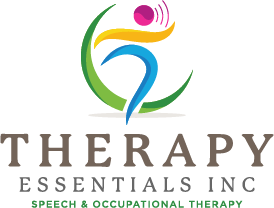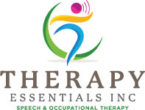
Seniors
The elderly suffer from a wide variety of diseases that may impact their ability to complete activities effectively. Diseases such as strokes, dementia, Parkinson’s disease, head injuries, etc. often cause problems with communication, behavior, organization, the ability to solve problems easily, and their ability to safely eat meals/swallow medication.
These are all areas that may benefit from speech therapy services. There are a number of consequences to ignoring speech, communication problems, and or swallowing problems.
They can include:
- An inability to get the attention of someone and effectively communicate what is needed. This can be as simple as getting a drink of water or as complex as getting emergency medical care. Sometimes a person can appear to be able to communicate effectively, but a closer examination reveals that the person really does not have the ability to request specific items or respond accurately to questions.
- Increased difficulty communicating emotions in an appropriate manner. This can lead to arguments, inappropriate behavior, or physical threats. These problems can be communication-based or stress-related.
- Difficulty managing personal, medical, and/or financial matters. This may cause problems with missed appointments. It can lead to missed medications or other medical treatments. It can also lead to unpaid bills and the threat of legal action.
- An inability to anticipate potentially dangerous situations and avoid injury. Some seniors will accept help from strangers without thinking of the possible consequences. They may share private information with people over the phone. They may engage in risky behaviors that may lead to injury (climbing a ladder to clean out the gutters, carrying heavy objects, running errands when there is a lot of ice and snow). -Difficulty consuming meals previously tolerated. They may be having difficulties, eating/chewing meals previously enjoyed. Coughing after swallowing food or liquid. These difficulties may lead to malnutrition and weight loss. -Decreasing vocal volume. Many disease processes can have a negative impact on vocal volume (loudness) making it difficult to be understood on the phone or in settings that include competing noise.
- A comprehensive speech therapy evaluation can determine if there is a speech, language, or feeding/swallowing-based problem, what the nature of the problem is, and how best to address through treatment. Speech therapy can focus on teaching the patient techniques to process, organize, or recall information. Caregiver training can also be addressed through therapy.
There are also times when a speech therapy evaluation may be needed to rule out a speech, language, or cognition problem. In cases where there does not appear to be a speech or language deficit, it may make sense to look at other possible factors. These can include medications, dehydration, depression, or an underlying medical problem. It is not normal for a healthy elderly person to have difficulty with communication, organizing their thoughts or completing everyday tasks related to personal, medical, and financial management. Problems with these tasks should be reported to the primary care physician so that signs and symptoms can be determined, possible causes identified, and proper treatment rendered.


